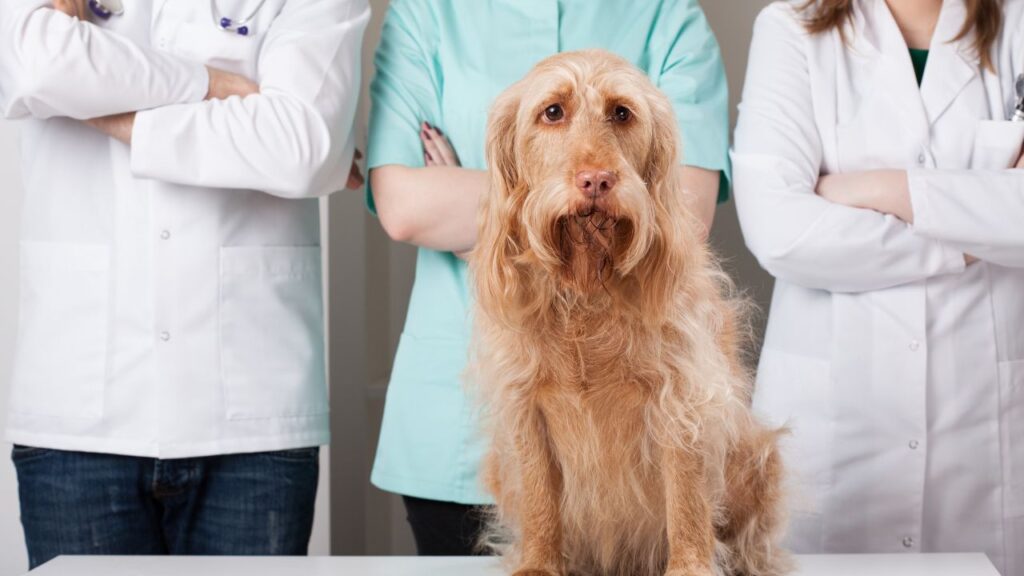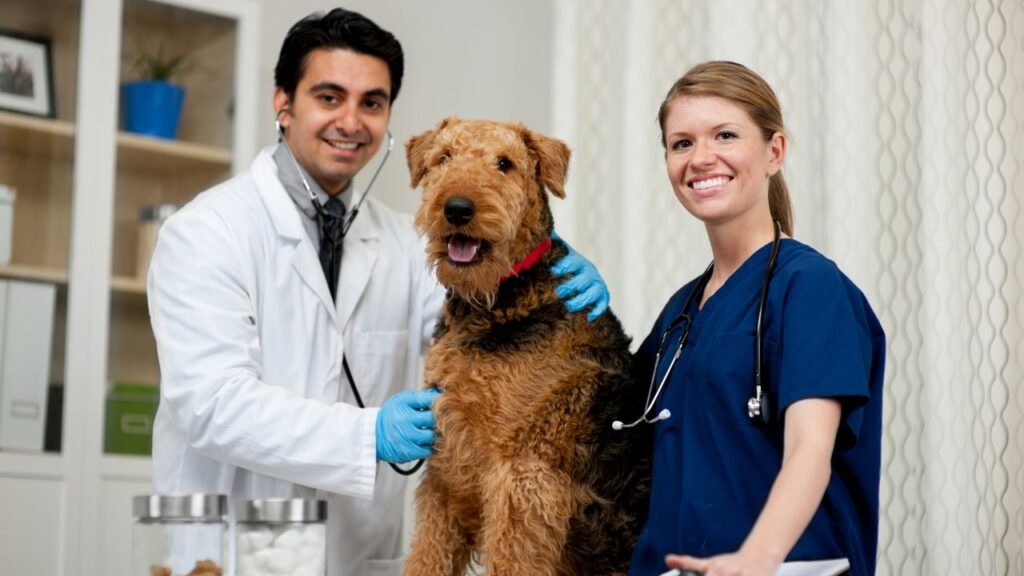Managing Your Dog’s Medical Files
Managing medical files is important with a complex illness like cancer. You should keep copies of your dog’s medical files. Most medical records are organized by date and sometimes by file type. Having your dog’s records on hand is one of the best communication tools with your veterinarian and leads to better care decisions.
Key Takeaways
- Your vet (and your dog!) will greatly benefit from having access to all your dog’s medical files.
- It can increase appointment efficiency, improve communication between you and the veterinarian, and ensure the best level of care for your dog.
- Your veterinarian will keep a file of your dog’s medical records. You have the right to access these files upon request. Your vet can provide these medical records directly to you or can send them to another veterinary professional as needed.
Your Dog’s Medical Record
Managing medical files can be daunting at first, but having your dog’s information in one place can be very helpful if you work with more than one vet while treating cancer or another serious health condition.
A medical record is the compilation of information collected during all of your dog’s veterinary visits. Your dog’s medical record may include:
- vaccination records
- blood work results
- information on visits for chronic health issues
- surgeries
- allergic reactions
- prescribed drugs and reactions
- temperament and behavior
- diagnostic imaging (radiographs, ultrasound, CT scan or MRI reports)
- communications with you, the owner
More Than a Receipt
Some owners only keep the receipt from their dog’s visit to the vet. However, receipts do not have the same information as a complete medical history. Receipts only show some of the activities during each visit and the contact information for the clinic.
A new veterinarian cannot get all the information they need from a receipt. They will instead have to contact the other clinic for more complete records.
This takes away time and resources that could be focused on your visit, which is why we recommend bringing your dog’s medical records with you or sending them ahead of time.
Who is Entitled to Request My Dog’s Records?
As the owner, you are legally entitled to your dog’s comprehensive health record upon request, and a person not identified as the owner on the clinic file will not be able to access medical records without your written consent.
If you want a family member or your dog’s breeder to have access to his medical record, let the clinic know ahead of time.
However, veterinary clinics can share patient medical files within the profession upon request.
For example, a specialist that your dog has been referred to can request your dog’s medical files from their primary veterinarian.
Full Medical Record in One Place
Your dog’s veterinary clinic will maintain records of your dog’s visits in an internal database. Each veterinary clinic has its own record-keeping system.
Some veterinary facilities still have paper records, but many are switching to a paperless system with electronic records.
For now, there is no shared database that all vet clinics can access. If your dog goes to multiple places, the vets will not know what happened at a different hospital unless the records are sent over or you bring them to your appointment.
Your veterinarian’s office can organize your dog’s records by date and merge them into one comprehensive file for you.
So if My Vet Has a Copy, Do I Need to Keep a Copy?
Maintaining a personal copy of your dog’s medical records is valuable for various reasons. For example…
- You will receive proof of vaccinations while traveling with your dog (vaccination records can also be provided as a separate, more concise document for easy verification).
- You will have a list of your dog’s medications and their reactions.
- You will have your dog’s medical records even if your dog’s veterinary clinic is closed, loses power, or goes out of business.
- You will have the information on hand in case of an emergency.
That last one is important. Most veterinary clinics are not open during the same hours as emergency clinics. They may be unable to share your pet’s medical history outside of normal business hours. This could waste precious time if your dog has an emergency.
Don’t rely on your memory during emergencies. Having a personal copy of your dog’s records lets you immediately provide accurate information during stressful and unexpected visits to the emergency clinic.
Options for Storing Personal Copies When Managing Medical Files
Medical records can be stored electronically on a flash drive or physically in a folder. There are pros and cons to each.
Paperless Storage on a Flash Drive:
Pros:
- Takes up less physical space.
- You can endlessly organize your dog’s medical records into folders and subfolders.
- You can immediately download your dog’s files sent from their veterinary clinics.
- Information can be easily transferred and may be preferable for most veterinary clinics.
Cons:
- Flash drives can fail after a certain period of time.
- A computer is required to open files.
Paperless Storage in the Cloud
Pros:
- Takes up no physical space.
- It can be accessed from any computer or device that connects to the internet (as long as you know your password!).
- You can endlessly organize your dog’s medical records into folders and subfolders.
- You can immediately upload records sent to you from veterinary clinics.
- Information can be easily transferred.
Cons:
- A computer or other internet-capable device is necessary to open files.
- Some services may require a paid subscription.
Physical Storage in a Folder
Pros:
- Allows you to present information without a computer immediately.
- It can be organized chronologically for a clearer timeline of your dog’s medical record.
Cons:
- Takes up physical space.
- Requires you to print the files.
You can, of course, use both methods. This helps ensure you can access the best type depending on the situation. It also ensures you have a backup copy of your dog’s medical records.
Keeping the Team Up to Date
There is no central medical records database for animals that helps you in managing medical files. As the owner, it is up to you to keep your dog’s veterinary practitioners and specialists aware of your dog’s medical history and conditions.
You can ensure this by either…
- Sending a copy of your dog’s records from your personal copy.
- Have your dog’s vet send a copy of your dog’s medical records.
Your veterinarian may automatically send copies of your dog’s medical record if they have referred you to a specialist.
Similarly, a specialist may automatically send information to your dog’s primary veterinarian after an appointment. It’s always a good idea to follow up and confirm that this is the case.
You can personally request your dog’s veterinary clinic to send files to a specialist or a new clinic. Most veterinary hospitals transfer files via email or data transfer devices upon request. This request can be made via email, in person, written, or telephone.
You can send the records you personally have, if necessary, for example, if your dog’s primary veterinary clinic has closed.
Always Send Your Dog’s Medical Records Before an Appointment
Ensure your dog’s medical records are transferred before your scheduled appointment. This is helpful for many reasons:
- It allows the veterinarian to prepare for your dog’s visit.
- It allows appointment time to be used more efficiently.
- It increases communication between you and your dog’s veterinarian.
- It ensures that your dog’s veterinarian can better focus on your dog’s needs.
- It helps to prevent repeating a test that was already done recently at a different hospital.
Systematically managing medical files helps ensure top-notch care for your dog. Think of your dog’s primary care clinic as part of the team striving for the best medical outcomes!
Topics
Did You Find This Helpful? Share It with Your Pack!
Use the buttons to share what you learned on social media, download a PDF, print this out, or email it to your veterinarian.







